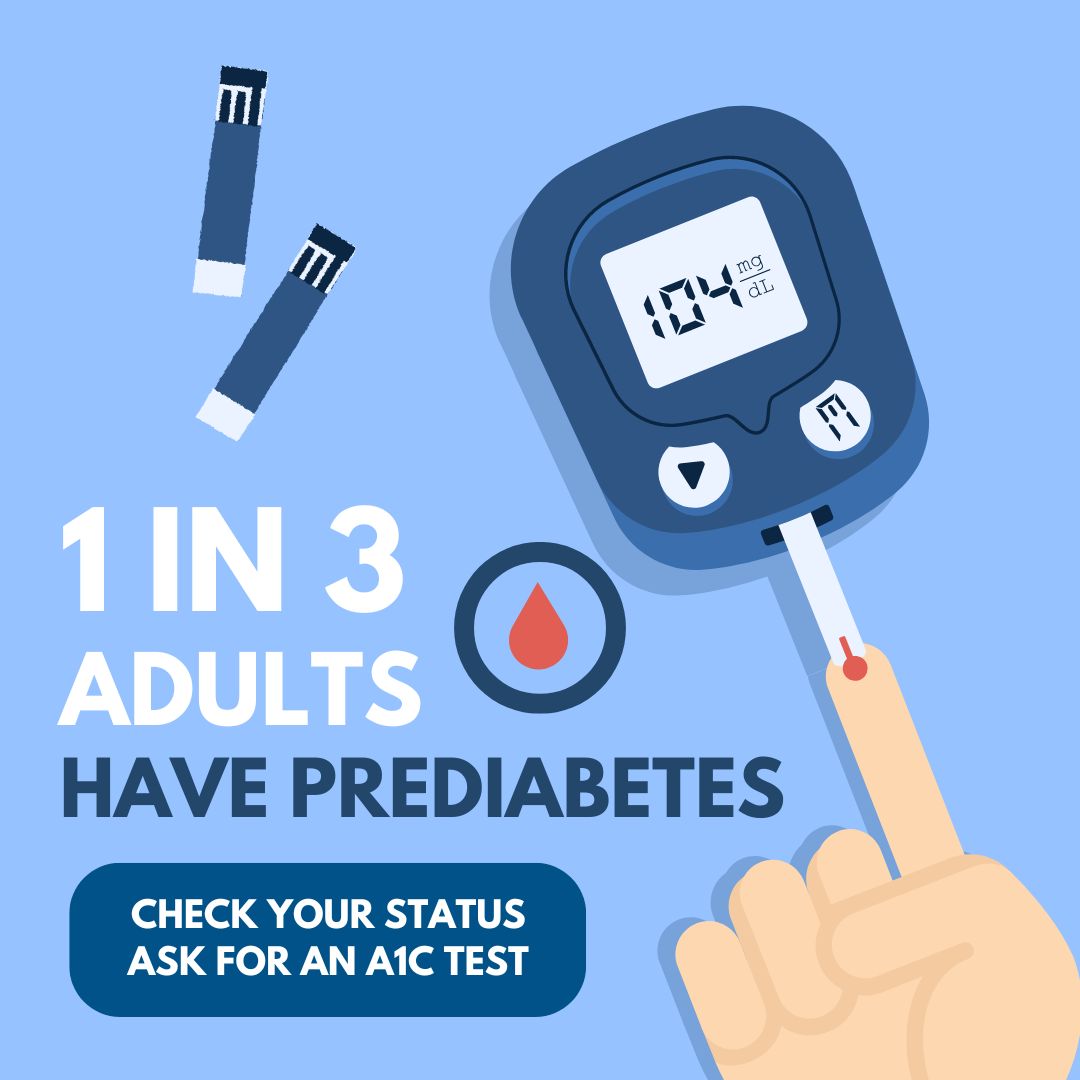Diabetes Care in OKC: Prevention, Diagnosis and Management
Did you know that more people in Oklahoma are finding out they have diabetes? Uncontrolled diabetes can lead to severe health problems including strokes, kidney impairment, heart attacks, and loss of vision. But don't worry, there are ways to manage it!
First, let's talk about what diabetes is and the types of diabetes there are. It's a health problem that affects how your body handles food for energy. People with diabetes need to be extra careful about what they eat and how active they are. There are several types of diabetes such as type 1, type 2, gestational diabetes and prediabetes.
Ask your doctor and get an A1C test quarterly for early detection and proper management.
Call or Text 405-632-6688 to Schedule
Prediabetes - Prevention is Possible
Yes! Type 2 diabetes can be delayed or prevented with lifestyle changes. Exercising is an excellent lifestyle change that helps people with a BMI ≥ 25 lower their risk of developing type 2 diabetes. Pairing increased physical activity with proper
eating habits and nutrition can improve that risk.
If you have prediabetes symptoms, call or text (405) 632-6688 to schedule an appointment with a Variety Care provider to get tested.
Diabetes Risk Factors
If you have any of the risk factors listed below, speak with your primary care provider to determine preventative care and ask if you should be screened.




Diabetes Diagnosis
The best way to determine whether a person has diabetes is to get an A1C test or fasting glucose test. Variety Care offers A1C tests and fasting glucose tests at all locations. The A1C test is fast - you can get results in less than 10 minutes!
Prediabetes symptoms include:
- frequent urination
- blurry vision
- fatigue
- excessive thirst or hunger
- slow healing wounds
- tingling, pain, or numbness in the hands/feet
Diabetes Types
- Type 1 Diabetes: Type 1 diabetesoccurs when the body’s immune system mistakenly attacks insulin-making cells, preventing the body from producing insulin, preventing the production of insulin. It affects around 5-10% of individuals diagnosed with diabetes.
- Type 2 Diabetes: Type 2 diabetes happens when the body no longer uses insulin properly, leading to fluctuations in blood sugar levels. It's the most common type, affecting 90-95% of people with diabetes.
- Gestational Diabetes: Gestational diabetes can occur during pregnancy. Not all pregnant women develop gestational diabetes and they may not have previously been diagnosed with diabetes to develop gestational diabetes. Gestational diabetes usually goes away after childbirth, but it raises the mother's chances of getting type 2 diabetes later in life. Additionally, there's a risk that the baby might be more likely to become overweight during adolescence and develop type 2 diabetes as they get older.
- Prediabetes: Prediabetes is the most common condition amongst adults. According to the CDC, 1 in 3 adults in the United States have prediabetes.
Diabetes Management for Oklahoma Patients
Management and proper education is pivotal in helping patients with diabetes control their health. Variety Care providers offer expert care and education for allpatients with diabetes. They can also identify and refer patients to additional services such as nutrition or diabetes education if needed to help them improve their health.
Here are some simple things you can do to stay healthy if you have diabetes:
- Exercise: Moving your body is important. Try to do fun activities like walking, biking, or playing sports to stay active.
- Eat Right: Eating healthy foods keeps your blood sugar levels in check. That means more fruits, veggies, and whole grains, and less junk food or sugary drinks.
- Take Your Medicine: Sometimes, your provider might give you medicine to help manage your diabetes. It's important to take it exactly as instructed.
Patients with diabetes should be monitored every 3 months if the A1C test is not at goal OR every 6 months if it is at goal.
Uncontrolled Diabetes
The higher your A1C level is, the greater your risk of developing diabetes complications. Diabetes management and A1C goals vary with each patient and their unique needs. Your provider may consider referring you for additional diabetes support if needed, and together your diabetes care team can help you learn and understand how to take control of your health.
Uncontrolled diabetes can lead to more serious health conditions such as heart disease, kidney failure, blindness and loss of limbs.
Learn all about your A1C test results.
Speak with your PCP to learn about the first steps of diabetes management. If you do not have
a PCP, call or text (405) 632-6688 to schedule an appointment.
If you would like to receive your health results quickly, download the MyChart app to get access to your health records, medication records, ask your provider questions, and more.


